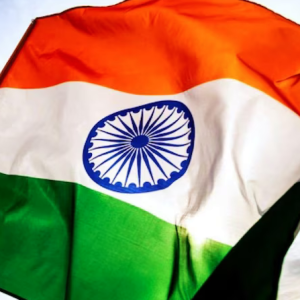
.png) Ram Puniyani
Ram Puniyani

Satyapal Malik, who has been the Governor of many states through the years, stated that Pulwama and Balakot played a substantial role in the victory of Modi-BJP during the 2019 General elections. He also predicted that another major spectacle would happen before the 2024 elections. The hysteria created around the temple consecration is a spectacle of the highest order. While this was going on, Suranya Aiyer, a lawyer and author, undertook a fast and penitence, calling it 72 hours of love and sorrow to fellow Muslims. She proclaims her pride in the Mughal heritage. One can see the creation of an intimidatingly stifling atmosphere of divisiveness.
Temple inaugurations have also been occasions for promoting communal harmony, as a couple of instances will show. Mahatma Gandhi, while inaugurating the Laxminarayan Temple (Birla Temple) in Delhi in 1939, stated, "It must be the daily prayer of every adherent of the Hindu faith…that every known religion of the world should grow from day to day and should serve the whole of humanity…I hope that these temples will serve to propagate the idea of equal respect for religions and to make communal jealousies and strife things of the past."
Similarly, Swami Vivekananda had earlier stated in 1997, "It is here in India that Hindus have built and are still building churches for Christians and mosques for Mohammedans." In his book 'Lectures from Colombo to Almora', we see Swamiji stating, "Nay more, to understand that not only should we be charitable, but also positively helpful to each other, however different our religious ideas and convictions may be. And that is exactly what we do in India, as I have just related to you… That is the thing to do."
The present atmosphere is in total contrast to this, as reflected by the fast of Suranya. It is also reflected in the incidents where cultural activists screening censor-approved all-time classic 'Ram Ke Naam' by Anand Patwardhan are arrested and issued non-bailable arrest warrants. This happened in Hyderabad on 20th January.
Then there are claims by the likes of Prafulla Ketkar, Editor of the RSS mouthpiece Organiser, claiming that the pran-pratishtha (consecration ceremony) of Ram Lalla in Ayodhya was not simply the culmination of the decades-old Ram Janmabhoomi movement, but the beginning of a "reconstruction of national consciousness". This essentially means the whole process of social change and the idea of India accompanying the freedom movement now stands negated, and what can roughly be called 'Hindu India' is already here. Multiple steps towards Hindu Rashtra have been achieved by the communal forces.
What accompanied the 'Idea of India' was a coming together of different sections of society to fight the colonial powers, with the aspirations of striving for Liberty, Equality, Fraternity and Justice for all, which are enshrined in the values of the Indian Constitution.
There were challenges to this idea of India, which were rooted in the values of kingdoms and what can be roughly called feudal society. The core of these values, which are being hailed by the forces creating hysteria around temple consecration, were/are the birth-based hierarchies of caste, class and gender. These roots lay in the kings and landlords of different religions and their ideologues, which eventually were birthed as Muslim League, Hindu Mahasabha and RSS. While Muslim communal forces are implementing their idea of feudal values in Pakistan, the Hindu communal forces are now rejoicing, in gradually increasing intensity, now reaching its semi-peak with Ram Temple consecration.
The idea of India at the time of the freedom movement was manifested in the values of Bhagat Singh, Ambedkar, and Gandhi, focusing on liberty, equality, fraternity, and friendship. Despite a few differences with the father of the Nation, Subhash Chandra Bose was also firmly committed to this "Idea of India'.
The elite landlords and Manusmiriti worshipping ideologists were the social base of Hindu Rashtra, Hindutva. These forces and this ideology have grown stronger, particularly during the last four decades, and are rejoicing in sectarianism becoming stronger. They give a narrow projection of the temple consecration compared to Gandhi and Vivekananda. The sectarian nationalists are for further deepening particular "civilisational values" intrinsic to Brahmanism inherent in Manusmriti.
Those calling for doing away with the values of Manusmriti, those integrating all into the umbrella of Indian-ness, and those standing together cutting across class, caste and gender are currently under an emerging threat and intimidation by Hindu India, the parallel of Muslim Pakistan.
The only ray of hope for the 'Idea of India' is for the same classes of society which ushered in the Idea of India during the freedom movement to come together. It is only through their collective movement that the forces which gloat over the birth-based hierarchical values in the name of religion, those who uphold holy scriptures in contrast to the Indian Constitution, can be undermined. The movement has fractured. The interests of the groups carrying forward their legacies may differ. Still, their interests in protecting the Indian Constitution and Idea of India, which emerged during freedom movements, need a collective ex
Many non-sectarian parties still exist today. Their predecessors had fought the British colonial powers together despite their differences. It is time for these sections of society's social and political alliance to be given primacy. As colonial rule was detrimental to the interests of large sections of society, similarly, those ruling through polarisation are also out to undermine the rights of weaker sections of society. This has abundantly been made clear during the last ten years or so.
Hysteria cannot combat yet more hysteria. We need the ideology which binds the weaker sections of society: the Dalits, religious minorities, women, workers and Adivasis. They have many shared values to protect: the 'Idea of India', which came with the freedom movement. Can Bharat Jodo Nyay Yatra be the first step in building a common platform? Can the Yatra succeed in doing this? This is the question hounding us all.